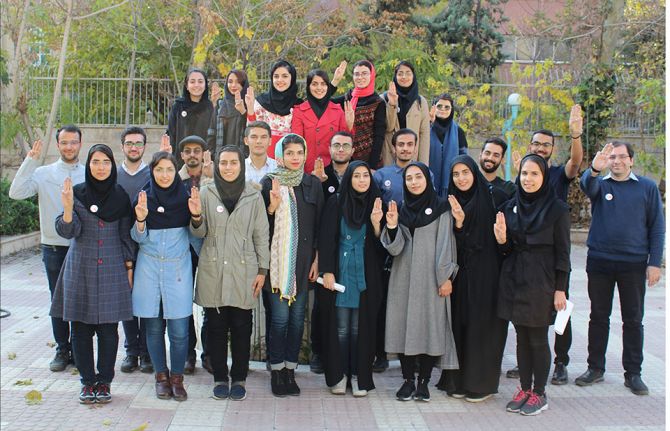

Feature Story
Islamic Republic of Iran bans stigma and discrimination against people living with HIV in health-care settings
27 January 2021
27 January 2021 27 January 2021The Islamic Republic of Iran has issued a new regulation prohibiting stigma and discrimination against people living with HIV in health-care settings.
Global experience has shown that stigma and discrimination limits access to HIV services at every step and stops people exercising their basic human rights, including the right to health. Studies in the Islamic Republic of Iran have identified health-care settings as an important venue where HIV-related stigma and discrimination needs to be addressed.
In 2019, the Islamic Republic of Iran joined the Global Partnership for Action to Eliminate all Forms of HIV-Related Stigma and Discrimination and set three priority areas—health settings, humanitarian settings and communities—for action. This new regulation is a direct result of the work in the partnership by both the country and UNAIDS.
The regulation covers all private and public health institutions and requires them to protect people living with HIV and key populations from stigma and discrimination. The regulation also covers a number of other areas, including raising awareness about HIV and the rights of people living with HIV, protecting the rights of people living with and affected by HIV and ensuring the discrimination-free provision of health care and treatment to people at higher risk of HIV and people living with HIV.
“This important breakthrough in the national response to HIV lays the ground for significantly controlling HIV in the country in the future,” said Fardad Doroudi, the UNAIDS Country Director for the Islamic Republic of Iran.
The UNAIDS country office has supported the efforts to eliminate stigma and discrimination in the country over many years. In 2010, to help understand the problem, the country office, the Global Fund to Fight AIDS, Tuberculosis and Malaria (Global Fund) through the United Nations Development Programme (UNDP) and the National AIDS Programme (NAP) supported the Iranian Research Center for HIV and AIDS (IRCHA) and the Global Network of People Living with HIV (GNP+) to conduct the first People Living with HIV Stigma Index study, which clearly showed that people living with HIV faced discrimination in health-care settings. A follow-up study conducted in collaboration with Harvard University on the root causes of stigma introduced a mathematical model on discrimination and showed the route to overcoming stigma. Currently, an Iranian coalition of people living with HIV, with support from NAP, IRCHA, GNP+, ICW, Johns Hopkins University and the UNAIDS country office, is conducting the country’s second People Living with HIV Stigma Index, using the updated 2.0 methodology.
With the knowledge from these studies, UNAIDS has worked against stigma and discrimination in the country in a variety of ways. With support of the Global Fund through UNDP, UNAIDS established “positive clubs” to provide services by and with people living with HIV in a stigma-free environment, advocated with policymakers and religious leaders and held national sensitization campaigns on stigma and discrimination in collaboration with civil society. UNAIDS also invested in the next generation of medical students, working with the International Federation of Medical Students through a series of workshops and courses to help to change the attitude of university students about HIV and stigma and discrimination.
In 2020, the UNAIDS country office technically and financially supported NAP to develop an ethical framework for the fifth National HIV Strategic Plan (2021–2025), as well as the anti-discrimination regulation, in a process backed by a team of national experts in the fields of law and ethics.
“It has been a long journey to get to this stage, but this is what I have waited so long for—a structural change, something that we could refer to if discrimination occurs in a health-care setting,” added Mr Doroudi.
UNAIDS continues to support and collaborate with the Government of the Islamic Republic of Iran to achieve its objectives to eliminate HIV-related stigma and discrimination in other areas.
“I pledge not to allow any interruption to occur on delivery, quality or quantity of HIV services across the country,” said Saeed Namaki, the Minister of Health and Medical Education of the Islamic Republic of Iran.



